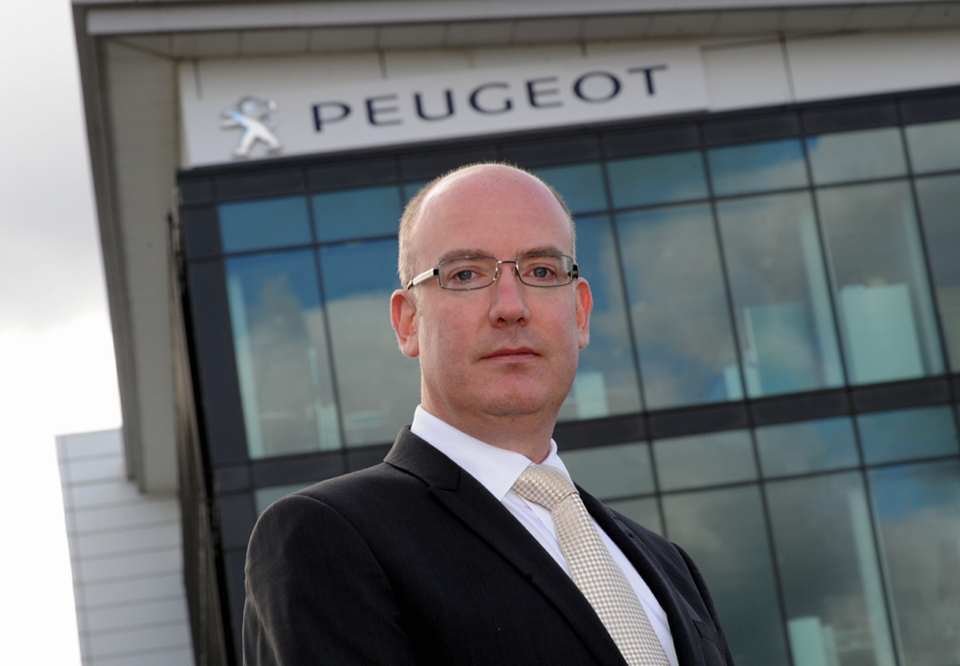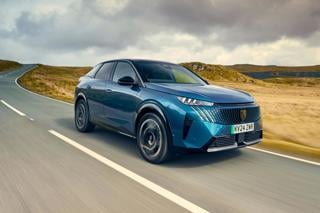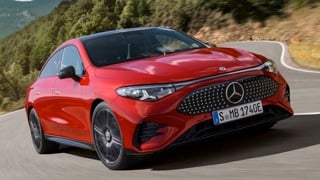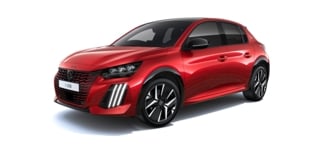Peugeot has learned from its experiences and will go back into the SME market, says director of fleet Martin Gurney.
It’s the eve of the UK media launch of the revised Boxer. Peugeot’s new director of fleet and used vehicles Martin Gurney is demonstrably excited, despite nursing a particularly rasping cough.
Perched at the edge of his seat in the bar at the Vineyard in Newbury, he’s explaining to Fleet News why he believes Peugeot is set for significant growth in the fleet sector – both corporate and SME – over the next few years.
“It won’t happen quickly, but there couldn’t be a better time in our history because our product is so strong,” he says.
With the 208 named Fleet News small car of the year and the 308 the 2014 European car of the year, the critics agree. Now ‘all’ Gurney has to do is convince fleets and their company car drivers.
Fleet News: Your predecessor Phil Robson was outspoken about reducing Peugeot’s sales to rental companies in order to improve residuals and make your cars more appealing to fleets. How well are you sticking to this fleet strategy?
Martin Gurney: We want to keep it simple. We have split fleet into green (retail, true fleet), amber (Motability, longer cycle business) and red (daily rental). This year we are exactly where we want to be. We are down 2,000 in fleet , which is 12% down in a TIV up 9% but that masks the 3,500 less we’ve done in red fleet, balanced by doing 1,000 more in true fleet. We want to accelerate that change.
The car market in fleet was stronger in Q1 than we expected; my perception is that it’s come from the channels where we don’t want to compete.
FN: What do you mean by ‘accelerate that change’?
MG: Last year we did 8,000 in rental which is down 50% in three years and we will go to just over 4,000 this year. I’m comfortable with that sort of volume; it’s around 1-2% market share.
FN: What impact has the reduction in rental sales had on your residual values?
MG: We benchmark against Volkswagen. We were around 12% behind VW on the basket of cars to end last year at 4% behind, which was our medium-term objective. But we want to be closer than 4%. We’ve been helped by the 308 which had a £1,500 uplift in residual values. We will take back 3,000 less NDR (national daily rental) than last year and more will be Peugeot Contract Hire (PCH) vehicles. We’ve seen a 10-15% shift away from one-year vehicles to three-year vehicles. But it’s not all down to NDR; it’s also our products and their desirability.
FN: Residual values is one key element in the running costs calculation. What are you doing to tackle two other major components: SMR and fuel?
MG: In the past we have faced a major challenge from France in understanding the UK fleet market. But we are the experts and now our views are listened to and our wholelife cost manager Bob Grant is involved in new model launches at an early stage. We didn’t have that person three years ago and that makes a huge difference working with the industry to get information out.
FN: What impact has the wholelife cost manager had on SMR costs?
MG: The SMR costs on the new 308 are 21% lower than on the old 308. This is due to longer service intervals, shorter service times, fewer parts changed at each service and reduced tyre costs. We used to be weak in this area and now we are strong.
FN: And fuel/CO2 emissions?
MG: We have the expertise and the engineering to reduce CO2 further, including through Hybrid Air . But we need to find more partners to develop this technology.
FN: Where do you see the major opportunities for growth in fleet?
MG: There are three strands to our strategy this year. The first is end-users – we have to maximise the opportunity from the new 308. I spent a lot of time in Q1 out with my team and our customers. The 308 is changing peoples’ perceptions but we have to get in front of more fleets with the 308 and especially the 308 SW.
Second, we have excellent relationships with leasing companies and influencers and we have to further those relationships. We are putting in place a proper review programme with our leasing partners so they are informed far enough in advance about our products to maximise our residual values.
Third, we have invested in a new business sales department. We recognised we could do better working with dealers to sell to SMEs. We have dropped the ball over the past decade but we are going back into this market. Dealers have new standards to meet but we also need to be more competitive with our own contract hire business PCH which is under my remit. I have looked at the support structure behind our main volume models to make sure they stack up versus our rivals.
FN: Is your biggest challenge convincing fleets to add you to their choice list, or persuading drivers to select your cars?
MG: It’s a joint challenge and it’s about overcoming past perceptions. The first person to win over is the fleet manager or HR department. We are still having those battles. Once we are listed, we have to have demonstrators available to give people the chance to test the cars. We are pushing the boundaries all the time to get more demonstrators on the fleet – I’m always in trouble with the finance team, and you can quote that!
FN: We’re here for the UK launch of the new Boxer: what are your plans in the fleet van market?
MG: We have a different strategy in vans: we will continue to pursue an aggressive strategy of growing our market share in a growing sector. We will sell twice as many vans in 2014 than in 2009. We have long-established partners that are high margin and low stock turn and others that are low margin and high stock turn but we are seeing lots of growth in the middle ground with SMEs. The appeal of Peugeot LCVs is widening – they are value for money, reliable and trusted products. Our conquest rate is high and the new Boxer will give a further boost to sales.
Last year was quite traumatic for Peugeot parent company PSA which faced uncertainties over ownership. Resolution came in the shape of China’s Dongfeng, a state-controlled car company, which acquired a 14% share from the Peugeot family. The family retains a 14% stake, as does the French Government, with the rest floated.
Gurney says this has brought stability to the business which is enabling the company to plan with greater certainty. One sign of this is the growing interest of franchised dealers to join the network, encouraged by the positive messages and the quality vehicles the company is launching.
He spent the first few months as fleet director with customers and Peugeot’s field teams building understanding of their needs. His priority is to use that insight to reflect on Peugeot’s internal policies and processes.
“There’s more we can do to speed things up and be more effective as a team,” he says.
“If we are focusing on the things that matter to our customers and less on the things that don’t, we will win and achieve the things we set out to achieve.”





















Login to comment
Comments
No comments have been made yet.